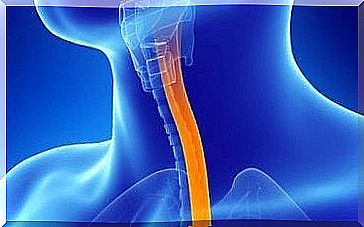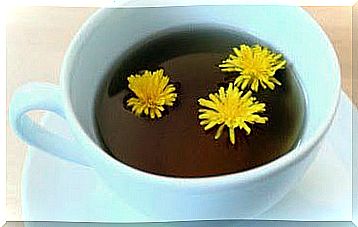Kindness: A Great Way To Take Care Of Your Brain

Kindness in your daily life is a way to create respectful and more sensitive interactions. Gestures that are driven by reciprocity and that are entirely intended to do something good lead to better mental health.
You have probably thought before that ‘planting’ good seeds does not always guarantee a good ‘harvest’ of respect.
However, while you may have been betrayed or disappointed more than once in your life, there is still one thing that is certain: you will live a better life if you can maintain the harmony between what you feel and what you do.
Listen to your brain
And while this may surprise you, your brain is also programmed to do good things. However, this doesn’t seem to be the case every day. On some days, other biological tendencies, such as a tendency toward resentment or envy, weigh much more heavily.
We invite you to learn a little more about this interesting topic.
Your brain understands that kindness is important

Jerome Kagan, a professor at Harvard University , specializing in a subject known as “the psychology of kindness.”
- According to Kagan, humanity is naturally programmed to be good. We all come to this earth with the ‘software’ that allows us to exercise kindness within us.
- However, as history has shown, this is not always the case. Why do we so often deviate from our nature?
When our brains understand that the exercise of kindness, compassion and respect is necessary. Could it be that the brains of some do not understand this and therefore make the opposite choices? We’ll go into that now.
Kindness helps us survive
- In his time, Charles Darwin formulated the same thesis as Professor Kagan. The human brain is programmed to practice kindness because it ensures our survival.
- In addition, kind gestures can enable us to understand the following. We have a much greater chance of survival when we support each other in a group. Instead of the alternative where we go through life alone.
- People are naturally empathetic because this ability helps them recognize the needs of others. After all, it is precisely in this way that we can help others to survive as a group.

Why aren’t friendly gestures as common as they could be?
It’s interesting to note that while humans are programmed to do good, our behavior thus far has actually put the balance of our planet at risk.
Wars, environmental pollution, social inequalities, attacks on our human rights… why do people behave this way?
- David Keltner is a professor at the University of Berkeley and the director of the Center for Kindness Studies.
- He explains that the way our society is built has made us more focused on individualism than a group consciousness.
- When people start to think in terms of self-interest, our biological balance tends more towards envy, anger, violence and competition and never towards kindness.
- Kindness and the urge to promote good things are of no use at all when you only feel the need to elevate your own status by amassing more wealth and recognition.
This is, of course, very depressing news.
Exercising kindness is good for your brain
Psychological dimensions such as resentment, envy or the stress caused by constant competition affect both your physical and emotional health.
Everyone has been carried away by these personal traits at some point in their lives. Eventually, however, you find out that it is not good at all to behave or feel this way, because it removes you from your essence, your roots.
Your brain knows full well that these biological tendencies toward negative actions keep you from interacting with other people and ultimately lead to deep and unpleasant loneliness.

Exercising kindness, on the other hand, has a positive influence on your inner balance, because it brings peace and well-being.
- It doesn’t matter whether others are aware or not of the small friendly gestures you perform every day. You are aware of it and that is enough, because it brings you harmony. You know what is right and that sounds like music to everyone’s ears.
- Kindness and compassion relieve powerful parts of the lymphatic system in the brain.
- A compassionate person is more intuitive, receptive and aware of everything around them.
Kindness is contagious
While you may not see respectful and genuinely kind gestures all around you throughout the day, this shouldn’t be a reason to give up or imitate this neglect. Believe it or not, kindness is contagious. Remember that you yourself can be the best example for your children, friends and family.
Small gestures can do a lot. And if everyone were to power the engine of everyday kindness, we would soon see amazing long-lasting results.









